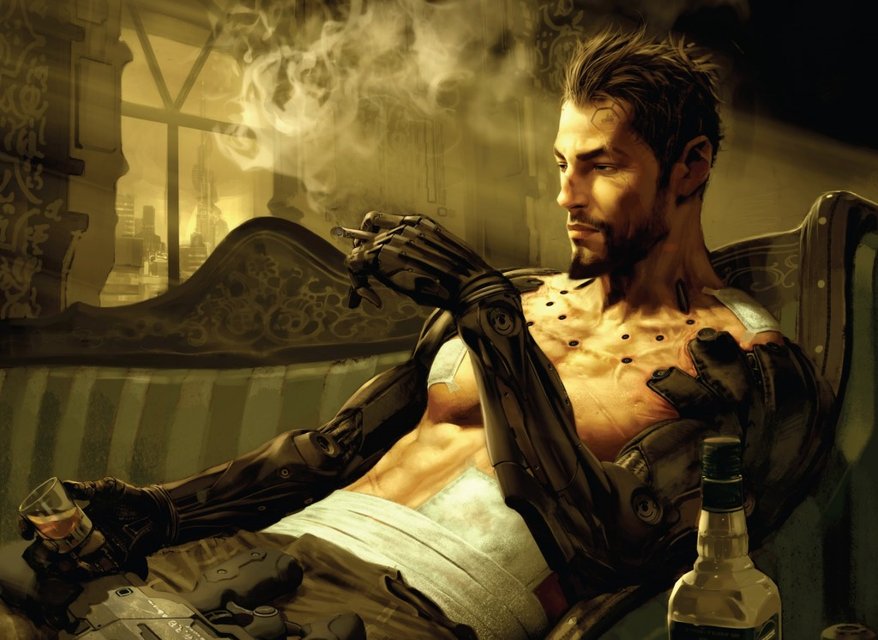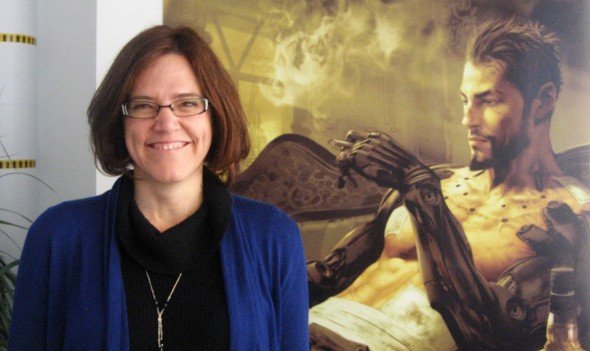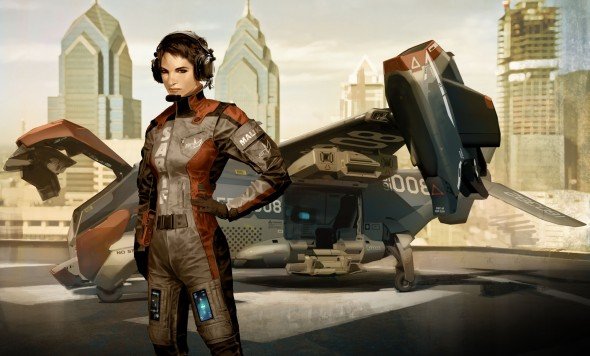Interview: writing Deus Ex: Human Revolution

We're wrapping up Deus Ex week - our onslaught of features and interviews about the third Deus Ex game, and retrospectives of the first. In this last entry, I talk to the Lead Writer and Narrative Designer for Deus Ex: Human Revolution about how you end a prequel, what 'conversational combat' is, and how the writer of the first game got involved.

PC Gamer: So you're the lead writer, are there many others?
Mary DeMerle: Yes, we have quite a few writers. Most of them have been contract, so they haven't necessarily been on the project the whole time or through the whole thing. But yeah, we've had about six different writers helping with this. And that doesn't count [Deus Ex 1 writer] Sheldon Pacotti, who had initial input on it too.
PCG: What's been the relationship with him and the other Deus Ex 1 guys?
DeMerle: Well, with Sheldon, it was pretty interesting, because – I have to admit, this is my little fan thing. I remember when Deus Ex first came out, I was working in San Diego at Presto Studios, the game company. And at the time that it came out, no one had really read too much about it, and then all of a sudden everybody fell in love with it.
So I remember everyone in the office playing it, talking about it. And then that year, I think, I went to GDC, and Sheldon gave a talk, and I went to hear his talk, and he just was amazing as a speaker. I was like, "Wow, this guy is so smart and so good at story and everything." And I remember meeting him and introducing myself briefly at one point. But that was it. And then we started working on this project, and when I started working on it, and I knew that we needed to get some more writers on, I thought, "I wonder if we could contact Sheldon." But I'd heard through the grapevine that he was still involved and working for someone else. I didn't think he would. And then all of a sudden we got an email from Sheldon, and he actually sent it – believe it or not – he sent it to our Human Resources people, in which he basically said...
PCG: "Can I have a job?"
The biggest gaming news, reviews and hardware deals
Keep up to date with the most important stories and the best deals, as picked by the PC Gamer team.
DeMerle: (laughs) No, he didn't ask for a job. He basically introduced himself and said, "I heard you guys were doing Deus Ex, and it's obviously something very dear to my heart." And he's like, "I'm not asking for a job, because I actually have a job, and I can't, but I'd be very curious." And the day we got that email, we were like, "Oh my God, let's call him," you know? So we called him and we brought him in. At the time that we got the email, we kind of had the story figured out, but we still had a bunch of approval to go through on it and stuff. So we said, "Let's see if we can get Sheldon here, and we'll tell him our story, and see what he thinks."
So we flew him in. It was really, really great. And from that point we communicated with him. We took him to dinner and we were telling him stories about how we started on this project, and how our big concern was that this is Deus Ex – "Don't fuck it up," you know? And we tell him this, and he laughs along with us. And then when we're saying goodnight to him, after this night of talking and stuff, he's like, "Okay. Well, guys, it was really, really nice meeting you. I just wanna say one thing: Don't fuck it up! "
And we were like "Oh God, now we really can't. You know, we were planning to, totally, until you said that, and now we're screwed."
But no, it was pretty fun.

PCG: What have you worked on before?
DeMerle: Well, I've been in the industry since '97. I started at Presto Studios, who did The Journeyman Project. I worked on Myst 3: Exile, and I worked on Myst 4: Revelation for Ubisoft. I also worked with Relic Entertainment on Homeworld 2.
PCG: Oh, cool.
DeMerle: Yeah, that was a lot of fun. I enjoyed that. The guys at Relic are a lot of fun. And I did a little bit of work for Gas Powered Games on the Dungeon Siege 2 series, and then a couple of other things that never got off the ground.
PCG: That seems to be a common trend in the industry - a lot of what you work on never actually sees the light of day.
DeMerle: Exactly. And some of them you understand why they never see the light of day, but with others you're like, "That's disappointing."
PCG: Yeah, Jonathan was talking about the PS2 version of Assassin's Creed that he was working on that never came out. He was quite sad about that.
DeMerle: Yeah.
PCG: What did you like about Deus Ex 1, from a writing perspective?
DeMerle: From a writing perspective? Wow, that's... I mean, to me, really good writing is [when] the story really fits the game, and really draws you in, and makes you feel like what you're doing has meaning and is relevant. And some of that comes through in gameplay - so the whole idea of there being choice and consequences. But also I think it was just that ability to really feel that whole global conspiracy was coming and affected you and you were a part of it.
I will say that one of the memories I have of that game was right at the very beginning, when I'm on Liberty Island and I could go to the docks and talk to somebody who has information. And so I go there and I meet this character, and he basically says, "I'll tell you, but only if you promise not to hurt anyone." And the choices come up.
I'm looking at those choices... and I'm not a killer kind of player. I'm a pacifist kind of player. But I'm also not very good at playing. So when those choices came up, and I saw the one that said, "Well, I'm not going to make any promises," I thought, I'm going to say, "I'm not going to make any promises," because for all I know [the NSF leader]'s gonna get killed in the crossfire, and I don't know where he is.
So I chose that, and the character said, "I'm not talking to you any more." And I was like, "Wait! Wait! No, wait!" And it made me realise that: wow, my choices have consequences in this. And I think that's one of the things I liked in that game, in that you felt almost immediately the repercussions of what you were choosing to do.

